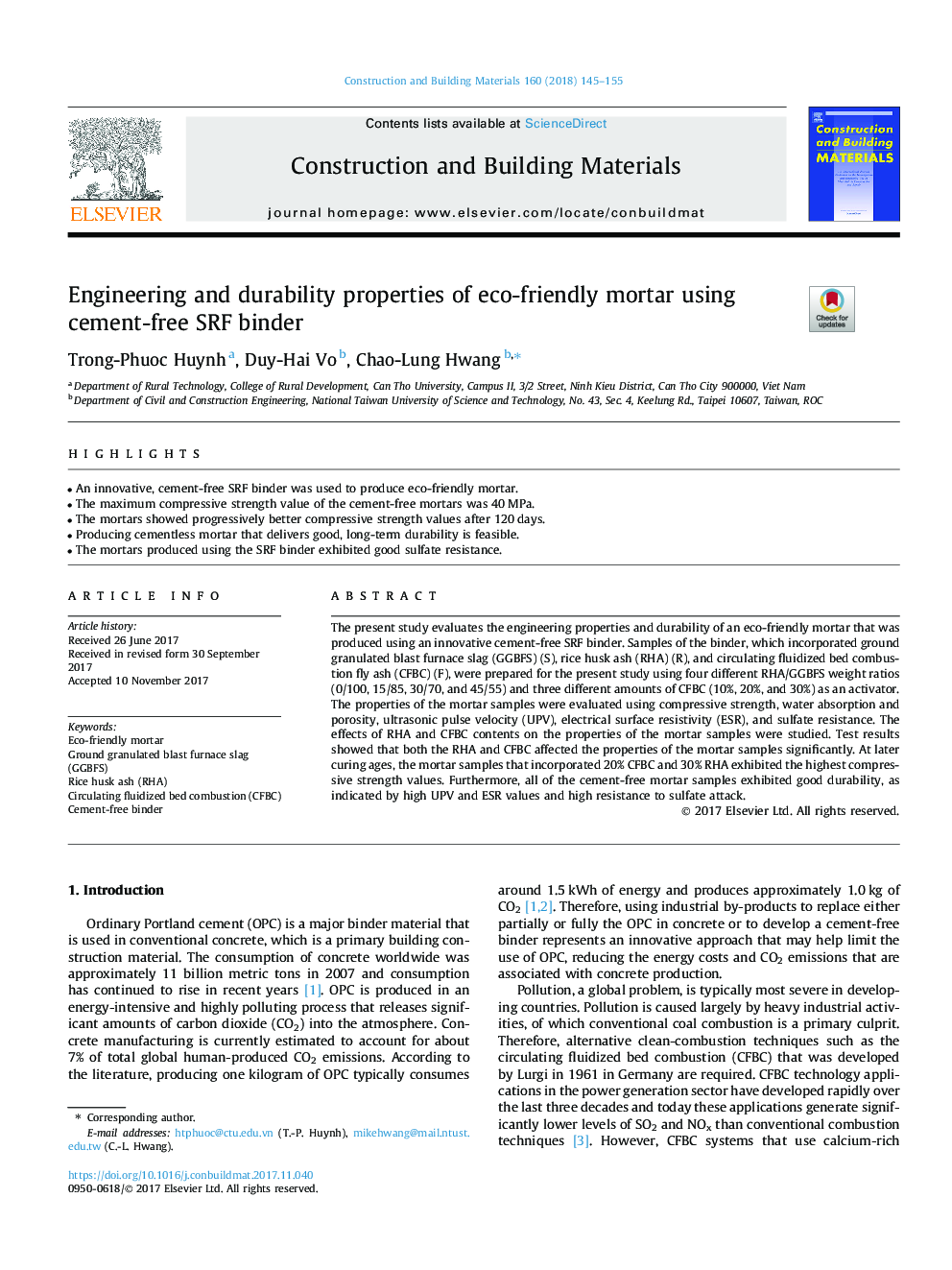| Article ID | Journal | Published Year | Pages | File Type |
|---|---|---|---|---|
| 6716960 | Construction and Building Materials | 2018 | 11 Pages |
Abstract
The present study evaluates the engineering properties and durability of an eco-friendly mortar that was produced using an innovative cement-free SRF binder. Samples of the binder, which incorporated ground granulated blast furnace slag (GGBFS) (S), rice husk ash (RHA) (R), and circulating fluidized bed combustion fly ash (CFBC) (F), were prepared for the present study using four different RHA/GGBFS weight ratios (0/100, 15/85, 30/70, and 45/55) and three different amounts of CFBC (10%, 20%, and 30%) as an activator. The properties of the mortar samples were evaluated using compressive strength, water absorption and porosity, ultrasonic pulse velocity (UPV), electrical surface resistivity (ESR), and sulfate resistance. The effects of RHA and CFBC contents on the properties of the mortar samples were studied. Test results showed that both the RHA and CFBC affected the properties of the mortar samples significantly. At later curing ages, the mortar samples that incorporated 20% CFBC and 30% RHA exhibited the highest compressive strength values. Furthermore, all of the cement-free mortar samples exhibited good durability, as indicated by high UPV and ESR values and high resistance to sulfate attack.
Keywords
Related Topics
Physical Sciences and Engineering
Engineering
Civil and Structural Engineering
Authors
Trong-Phuoc Huynh, Duy-Hai Vo, Chao-Lung Hwang,
